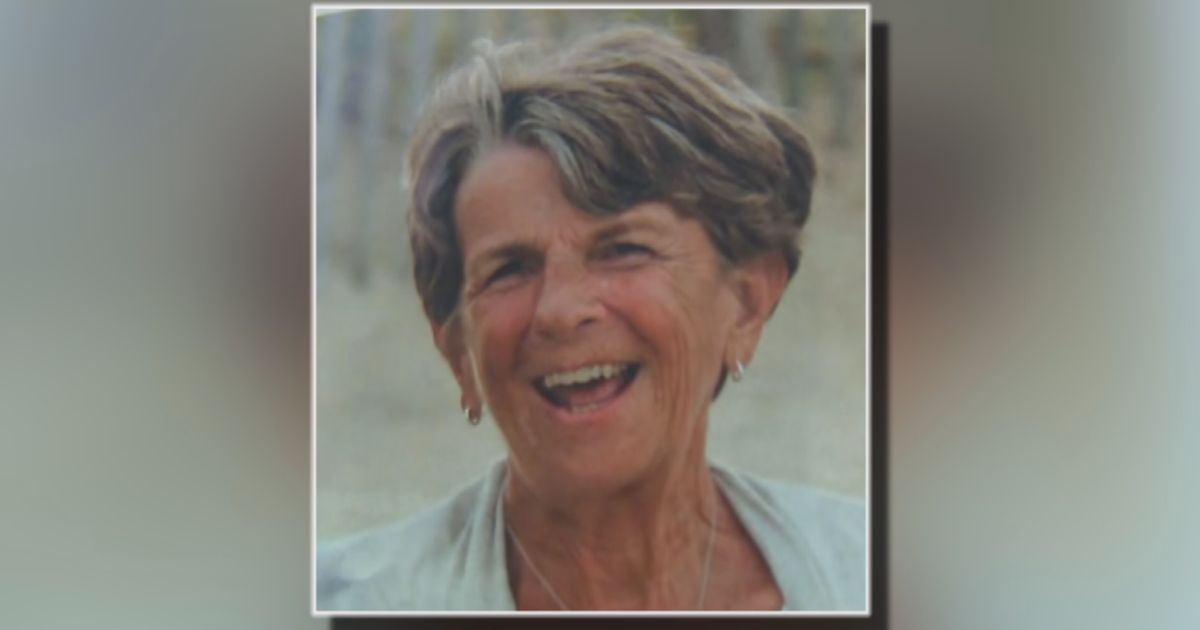Smithsonian Acquires Materials Related To First COVID Vaccine Dose Administered In The U.S.
WASHINGTON, D.C. (WJZ) -- The Smithsonian's Natural Museum of American History has acquired materials connected with the first doses of the FDA-approved COVID-19 vaccine in the U.S.
The first doses of the vaccine were administered on Dec. 14 by Northwell Health in New York.
This comes as the nation marks the one-year anniversary of the pandemic and surpasses a death toll of more than 525,000. The World Health Organization declared COVID-19 a pandemic on March 11, 2020.
Sandra Lindsay, an ICU nurse with Northwell Health, was the first person known to receive the vaccine in the U.S. Her vaccination record car, scrubs and hospital identification badge are among the items the Smithsonian acquired.
Northwell also donated a now empty vial of the Pfizer vaccine that contained Lindsay's dose.
The DC museum also acquired additional vials of both Pfizer and Moderna vaccines as well as other supplies like syringes.
"The urgent need for effective vaccines in the U.S. was met with unprecedented speed and emergency review and approval," said Anthea M. Hartig, the museum's Elizabeth MacMillan Director. "These now historic artifacts document not only this remarkable scientific progress but represent the hope offered to millions living through the cascading crises brought on by COVID-19."
In April 2020, the museum formed a task force to help collect items related to the COVID-19 pandemic and document scientific and medical events as well as how it affected business, work, politics and culture.
"Dec. 14 was a historic moment for all: the day the very first COVID-19 vaccine was administered in the United States," said Michael Dowling, president and CEO of Northwell Health. "It was our first real sign of hope after so many dark months in the fight against the global pandemic. Northwell was prepared to put shots in arms as soon as the vaccine arrived, not to make history but to protect our frontline workers battling COVID-19 as quickly as possible."
But when Sandra Lindsay rolled up her sleeve, we weren't just showing our team members the safety and efficacy of this groundbreaking vaccine—we were telling the world that our country was beginning a new fight back to normalcy," Dowling added. "It was an extraordinary moment, and I thank the Smithsonian for preserving this important milestone."
The museum's staff continues to look for more items to collect in order to document this pandemic.
The public can make suggestions at inquiry@si.edu and submit their experience with the pandemic at Stories of 2020, a site that will serve as a digital time capsule for future generations.
The museum is working on a 3,500-square-foot exhibit, "In Sickness and in Health," that will explore "how Americans' efforts to contain, control and cure illnesses have helped shape the nation's history," Smithsonian said in a release.
The exhibition will feature artifacts from 19th-century vaccination tools and diagnostic instruments to cardiac implants, imaging technologies and objects from the global smallpox eradication campaign and the COVID-19 pandemic. Among the museum's resources related to vaccines and the role of antibodies is a website, "The Antibody Initiative."





